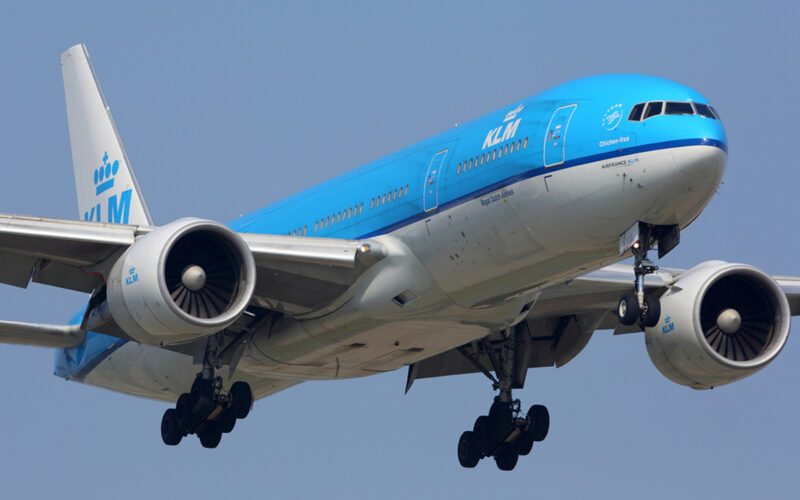On October 22, 2024, Dutch flag carrier KLM operated a special flight from Amsterdam to Singapore as part of The Aviation Challenge. This is a program initiated by the SkyTeam Alliance (of which KLM is a member) and challenges member airlines to conduct their operations as efficiently and with as little environmental impact as possible. The results of these test flights are shared among the participating airlines, to facilitate the exchange of knowledge and reduce the environmental impact of member’s flight operations.
According to a statement issued by KLM, SkyTeam’s Aviation Challenge “is inspired by the historic World’s Greatest Air Race, which ran from London to Melbourne in 1934. The race aimed to make the world more accessible and connect people. Today, the challenges for aviation are no longer in bridging distances but in making operations more sustainable. SkyTeam challenges the participating airlines to conduct regular, commercial flights with as little environmental impact as possible.”
The flight used for the Challenge flight was KL835 which departed Amsterdam-Schiphol Airport (AMS) at 21:12 local time on October 22, 2024, and arrived at Singapore-Changi Airport (SIN) at 16:04 on October 23, 2024. The flight was operated by one of the carrier’s 16-strong fleet of Boeing 777-300ERs (registered PH-BVV).

According to an airline statement issued after the flight, KLM said it “acknowledges its impact on the environment and climate and sees that there are limits to what our planet can handle. Action is needed to operate within these limits. By testing various innovations during flight operations and on board, KLM evaluates their outcomes with the goal of scaling them up and implementing them as standard practices.”
Both during preparation and during the flight itself, KLM tested various sustainability initiatives. Concerning air cargo transport, KLM hopes to eventually replace all metal cargo containers and pallets with lightweight cardboard alternatives. This change, says the carrier, could save 150kg of material per flight needed for cargo transport. KLM hopes to save nearly 0.05% CO2 (6 kilotons) annually through this measure.
Additionally, for the special flight, as many electric ground processes as possible were used, and the aircraft was towed to the runway before taking off from Amsterdam, saving 400 kg of fuel. The process involving towing the aircraft to the active runway means that the aircraft engines can be started later burning less fuel.
Equally, the optimization of weight loading and distribution can also help reduce fuel consumption and CO2 emissions. According to KLM, “By distributing the weight on board as optimally as possible, a small lift under the nose is created, resulting in less air resistance and thus a more efficient flight.”

In the passenger cabin on the flight to Singapore, those traveling in the airline’s World Business Class cabin were asked to pre-order their meals. This process helped KLM to load exactly the amount of food needed for the flight on board, reducing food waste and overall fuel burn.
Passengers in all cabins were encouraged to pack lightly to reduce weight and were asked not to print paper boarding passes. This process involving promoting the use of e-boarding cards has led to an 84% reduction in printed boarding passes since May 2024, says the carrier.
Onboard initiatives
During the flight, lighter tableware was used in World Business Class, which saves around 5 kg per flight and results in an annual saving of 150 tons of CO2 emissions across the entire KLM fleet. Additionally, World Business Class passengers received a lighter 3D-printed KLM house instead of the regular porcelain KLM houses which are traditionally gifted to the airline’s business class passengers.
Elsewhere during the service, passengers could purchase alternative fuel (SAF) credits onboard the flight. While the SAF purchased was not used specifically on the flight to Singapore, it will be used by KLM for flights in the future. Lastly, the cabin crew wore a new uniform made from more sustainable fabric from recycled PET and with more stretch, which was said by KLM to provide more comfort while working on board.

